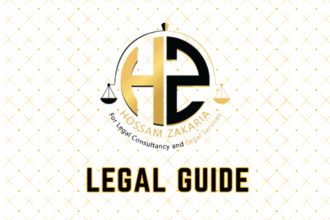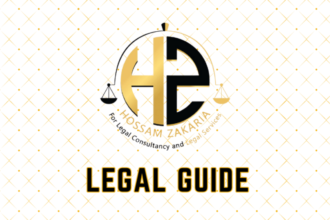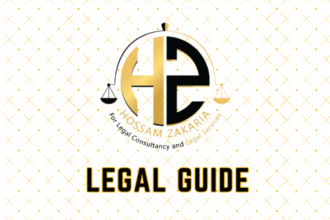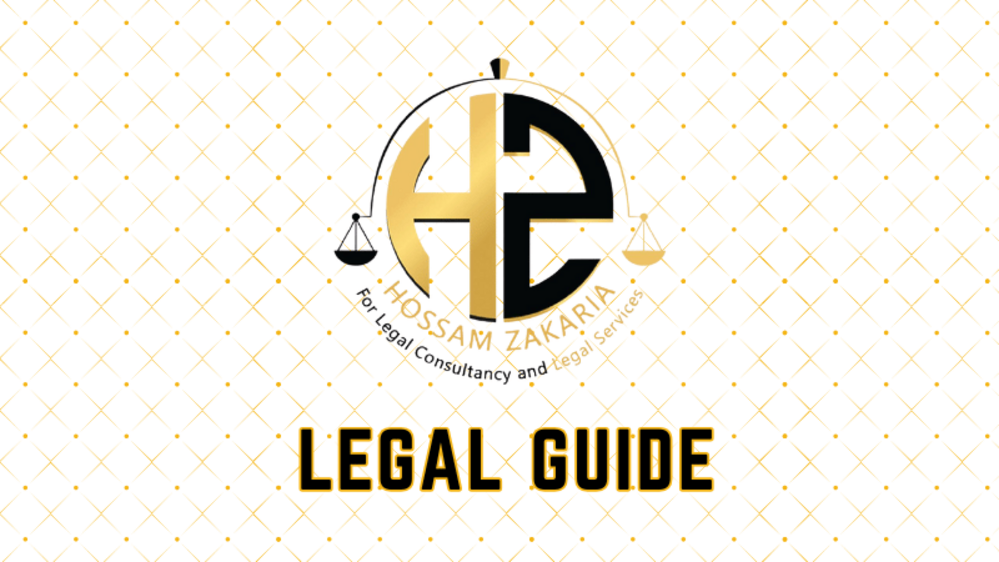Introduction
As the United Arab Emirates continues to strengthen its position as a regional and global center for dispute resolution, understanding the evolving mechanisms for arbitral awards and their enforcement has become crucial for businesses, investors, corporate executives, and counsel operating within the jurisdiction. The UAE’s legislative landscape has undergone significant transformation in recent years, particularly with the introduction of Federal Law No. 6 of 2018 (UAE Arbitration Law) and its subsequent amendments, mitigating historic uncertainties around recognition and enforcement of arbitral decisions. These legislative reforms, bolstered by a strong pro-arbitration judicial environment and the UAE’s accession to the New York Convention, reinforce the nation’s commitment to fostering a secure, predictable, and arbitration-friendly legal environment.
This article presents an expert analysis of the regime governing arbitral award enforcement in the UAE, drawing upon the most current legal frameworks, including 2025 updates and recent Federal Decrees. It further explores compliance strategies, identifies practical risks, and offers actionable guidance for organizations. This analysis is designed to equip corporate leaders, HR managers, legal practitioners, and compliance officers with the insights required to successfully navigate cross-border and domestic dispute resolution under UAE law.
Table of Contents
- UAE Arbitration Legal Framework Overview
- Characteristics and Types of Arbitral Awards
- Enforcement of Arbitral Awards in the UAE
- Recent Legal Updates and Implications for 2025
- Comparing Old and New Enforcement Regimes
- Practical Considerations and Risk Management
- Hypothetical Case Studies
- Compliance Strategies and Best Practices
- Conclusion and Forward Look
UAE Arbitration Legal Framework Overview
Federal Law No. 6 of 2018 on Arbitration
The UAE Arbitration Law, embodied in Federal Law No. 6 of 2018, brought the nation’s arbitration practice in line with international standards, shaped largely by the UNCITRAL Model Law. This legislation constitutes the principal legal foundation for both domestic and international arbitration seated in the UAE, excluding arbitrations conducted in financial free zones such as the DIFC and ADGM, which operate their own arbitration rules.
Key features of the 2018 Arbitration Law include:
- Recognition of electronic agreements to arbitrate as valid (Article 7)
- Party autonomy in appointing arbitrators and choosing arbitral rules (Articles 9-13)
- Clear procedures for the challenge and replacement of arbitrators (Articles 14-20)
- Explicit provisions on due process and equal treatment (Article 26)
- Official recognition of interim and conservatory measures (Article 21)
- Defined grounds for setting aside and refusing enforcement of awards (Articles 53, 54)
International Treaties and Supporting UAE Laws
The UAE acceded to the New York Convention on the Recognition and Enforcement of Foreign Arbitral Awards in 2006, thus obliging local courts to enforce foreign arbitral awards subject to limited exceptions. Furthermore, Civil Procedure Law reforms, particularly those under Federal Law No. 11 of 1992 (as recently amended), interact with arbitration enforcement, especially concerning the execution of awards and applications for annulment.
Characteristics and Types of Arbitral Awards
Defining an Arbitral Award Under UAE Law
The UAE Arbitration Law defines an arbitral award as an independent, final, and binding determination by an arbitral tribunal that resolves, wholly or in part, the matters submitted to arbitration. Awards must meet procedural requirements, including a written format, signature by arbitrators, identification of parties, dispute details, operative terms, and reasons unless otherwise agreed by the parties (Article 41).
Types of Arbitral Awards
- Final Award: Disposes of all substantive issues between the parties.
- Partial Award: Resolves specific claims or legal issues, while leaving others for subsequent determination.
- Interim/Provisional Award: Deals with urgent or protective measures (e.g., preservation of assets).
- Consent Award: Records settlement terms agreed by the parties during proceedings.
Procedural Requirements for Validity
A valid arbitral award under UAE law must:
- Be rendered in writing and signed by arbitrators
- Contain reasons, operative orders, and the date/place of issuance
- Be communicated to all parties as per prescribed procedures
Enforcement of Arbitral Awards in the UAE
Enforcement Framework and Steps
Enforcement of arbitral awards in the UAE is codified primarily in Articles 52-57 of the UAE Arbitration Law and complemented by the provisions of the Civil Procedure Code (as amended by Cabinet Resolution No. 57 of 2018, among others). Notably, the expedited enforcement mechanism was a landmark reform—requiring enforcement petitions to be made directly to the Court of Appeal rather than the Court of First Instance, reducing the risk of protracted procedural delays.
General Steps for Enforcement:
- Party files enforcement application before the UAE Court of Appeal (“Enforcement Judge”), attaching the original or authenticated arbitral award, arbitration agreement, certified Arabic translation (if needed), and copy of the minutes of deposit at court (Article 55).
- The court assesses formal and substantive compliance but does not review the merits.
- Unless an application to set aside the award is made within 30 days, or one is filed with credible grounds, the court orders enforcement.
- Award debtor may challenge enforcement on limited procedural or public policy grounds (Article 54).
Grounds for Refusal of Enforcement
| Ground for Refusal | Reference |
|---|---|
| Award contravenes UAE public order or morals | Article 54(2) |
| Invalidity of arbitration agreement or incapacity of parties | Article 54(2)(a-b) |
| Failure to give notice or ensure due process | Article 54(2)(c) |
| Misconduct of arbitral procedure not agreed by parties | Article 54(2)(d-e) |
| Award relates to non-arbitrable matter | Article 54(2)(g) |
It is important to note that substantive review of the dispute is not permitted at the enforcement stage, reflecting the UAE courts’ increasingly arbitration-friendly posture.
Recognition and Enforcement of Foreign Awards
Enforcing foreign arbitral awards in the UAE is governed by the New York Convention (since 2006) and relevant national laws. The enforcement process now follows the same path as domestic awards, subject only to New York Convention exceptions (public policy, incapacity, procedural defects, etc.). This alignment greatly increases certainty for cross-border investors and multinationals.
Judicial Support for Arbitration
A key development is the evolving supportive, rather than interventionist, approach of UAE courts. Particularly since Federal Law No. 6 of 2018, the judiciary’s remit is restricted to specific supportive and supervisory functions—such as appointment of arbitrators on default, preservation of evidence, and ratification/enforcement of awards—consistent with best international practice.
Recent Legal Updates and Implications for 2025
2025 Updates to Arbitration-Related Laws
Throughout 2024 and into 2025, the UAE has introduced critical amendments and new implementing guidelines to further streamline arbitration and enforcement procedures. Most notably:
- Federal Decree-Law No. 17 of 2023: Introduced refinements to award enforcement timelines, clarifying that enforcement must be commenced within three years from the date the award becomes final, adding certainty to limitation periods and addressing prior ambiguities.
- Cabinet Resolution No. 8 of 2024: Issued practical protocols for online and remote arbitral hearings, digital evidence submission, and e-signatures—responding to the growing prevalence of virtual dispute resolution.
- Updated Ministry of Justice Guidelines (2024): Further clarified requirements for notarization or legalization of foreign arbitral awards, as well as codifying translation and document submission standards, ensuring consistency across emirates.
Impact and Opportunities for the Business Community
These recent changes reflect the UAE’s strong appetite for innovation in dispute resolution. By minimizing red tape and uncertainty in enforcing arbitral awards, the UAE becomes an even more attractive forum for global business, foreign direct investment, and commercial contracting. Timely compliance is essential for parties seeking predictability and cost efficiency in cross-border disputes.
Comparing Old and New Enforcement Regimes
| Aspect | Pre-2018 Regime | Post-2018/2025 Regime |
|---|---|---|
| Enforcement Authority | First Instance Courts | Court of Appeal (Enforcement Judge) |
| Grounds for Refusal | Broader, at times substantive review | Limited to procedural/public policy |
| Timelines for Enforcement | Unclear, often protracted | Expedited proceedings (typically <60 days) |
| Electronic Procedures | Absent/minimal | Enabled under 2024-2025 updates |
| Limitation Period | Unclear, subject to challenge | Three years from finality (per 2023-2025 amendments) |
Visual suggestion: Process flow diagram showing the steps from arbitral award issuance to enforcement application, highlighting timeframes and key milestones.
Practical Considerations and Risk Management
Managing Key Risks in Arbitration and Enforcement
While the UAE legal regime encourages efficient arbitration, businesses must remain attentive to potential risks that could jeopardize award enforcement. Common challenges include:
- Procedural Irregularities: Awards rendered in contravention of agreed procedure or law risk annulment—meticulous compliance is mandatory.
- Public Policy Concerns: Any contravention of UAE’s public order can obstruct enforcement, particularly regarding interest rates, penalties, or non-arbitrable matters (such as certain employment or criminal issues).
- Defective Notification: Inadequate evidence of proper notice to all parties can derail enforcement proceedings.
- Expired Limitation: Recent amendments mean delay in enforcement can result in loss of rights.
- Translation and Documentation Errors: Failure to provide certified Arabic translations or proper legalization of foreign documents can result in rejection of applications.
Practical Consultancy Insights
Corporate actors are advised to:
- Pre-emptively address potential public policy issues during contract drafting and arbitration proceedings.
- Meticulously document service and notification of all parties throughout the arbitration.
- Ensure documentation is complete, authenticated, and correctly translated in accordance with latest Ministry of Justice guidelines.
- Initiate enforcement without undue delay to avoid limitation issues.
- Where necessary, leverage specialized arbitration or litigation counsel familiar with the UAE regime.
Hypothetical Case Studies
Case Study 1: International Construction Dispute
Scenario: A European contractor wins an ICC arbitral award against a UAE developer relating to delayed payments for a high-profile Dubai project. The award is rendered in Paris, governed by French law. The contractor seeks enforcement in the UAE.
Key Actions:
- File enforcement application with the Dubai Court of Appeal specifying New York Convention basis.
- Submit original award, authenticated arbitration agreement, and certified Arabic translation.
- Developer attempts to resist enforcement citing “public order” (interest provisions exceeding UAE legal limits).
Outcome: The court recognizes the foreign award but refuses enforcement of excess interest elements, reflecting application of UAE public policy while upholding the rest of the award in line with international best practice.
Case Study 2: Domestic Commercial Arbitration
Scenario: A UAE manufacturer and supplier resolve a distributorship dispute via arbitration. The award is timely issued, but the losing party claims procedural unfairness—alleging insufficient notice of proceedings.
Key Actions:
- Court investigates documentary record of notices and communications.
- If the tribunal’s process is shown to have fully complied with due process requirements under Article 26, enforcement proceeds.
- If violations are detected, the award could be annulled.
Lesson: Comprehensive record-keeping of all arbitral correspondence is essential for enforcement risk management.
Compliance Strategies and Best Practices
Best Practices for Organizations Operating in the UAE
- Arbitration Clauses: Draft robust, clear clauses specifying seat, rules, and language. Anticipate UAE public policy and enforcement issues at the contract stage.
- Document Management: Maintain proper records of all agreements, notices, and procedural steps as evidence for enforcement.
- Time Management: Promptly initiate award enforcement within the statutory three-year window to avoid expiration.
- Language and Translation: Engage certified legal translators to ensure all documentation meets court standards.
- Engage Local Experts: Use UAE-qualified counsel for enforcement, especially when foreign counsel handled the underlying arbitration.
Compliance Checklist (Visual Table)
| Requirement | Details | Completed? |
|---|---|---|
| Arbitration Agreement | Valid, signed (electronic/physical) | [✔/✗] |
| Original Award | Signed, reasoned, dated | [✔/✗] |
| Translation | Certified Arabic version | [✔/✗] |
| Document Authentication | Authenticity/legalization of foreign docs | [✔/✗] |
| Notification/Service | Comprehensive record of notice to parties | [✔/✗] |
| Limitation Period | Enforcement initiated within 3 years | [✔/✗] |
Conclusion and Forward Look
The UAE has firmly cemented its reputation as a preferred venue for arbitration and a reliable jurisdiction for enforcing arbitral awards. The legislative advances of the last decade—culminating in the efficient, transparent, and business-friendly frameworks of 2025—have greatly enhanced legal certainty for parties doing business in the Emirates. As the UAE further digitalizes arbitration practice and harmonizes its procedures with global standards, parties can expect continued reduction in cost and delay associated with dispute resolution.
Looking ahead, it is imperative for businesses and practitioners to remain up-to-date with evolving enforcement requirements and to anticipate future digitization trends, public policy refinements, or international treaty developments. Compliance, proactive contract management, and timely legal action remain cornerstone strategies to maximize enforceability and minimize disputes under UAE law.
For tailored advice and case-specific strategies, engaging a local legal consultancy with in-depth knowledge of the UAE’s arbitration regime is highly recommended—ensuring that your organization remains agile, compliant, and prepared for cross-border commercial success.



